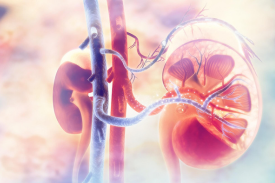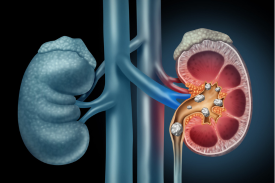Urologists are medical professionals who specialize in the treatment of conditions related to the male and female urinary tract and male reproductive system. In men’s health, urologists play a critical role in the diagnosis, treatment, and prevention of a wide range of conditions, from prostate cancer to erectile dysfunction. In this blog, we will explore the important role that urologists play in men’s health and how they help men achieve optimal health and well-being.
Prostate cancer is the most common cancer in men, and it is the second leading cause of cancer-related deaths in men. Urologists play a critical role in the diagnosis and treatment of prostate cancer. They use a variety of diagnostic tests, such as the prostate-specific antigen (PSA) test and digital rectal exam (DRE), to screen for prostate cancer. If prostate cancer is diagnosed, urologists can develop a treatment plan based on the stage and severity of cancer. Treatment options for prostate cancer include surgery, radiation therapy, and hormone therapy.
Erectile dysfunction (ED) is a common condition that affects many men. ED is defined as the inability to achieve or maintain an erection sufficient for sexual intercourse. Urologists are experts in the diagnosis and treatment of ED. They can use a variety of diagnostic tests, such as blood tests and imaging studies, to identify the underlying cause of ED. Treatment options for ED include oral medications, such as Viagra or Cialis, as well as penile injections and vacuum devices.
Urinary tract infections (UTIs) are a common condition that can affect both men and women. However, UTIs are more common in women than men. When men do develop UTIs, urologists play a critical role in the diagnosis and treatment of the infection. They can use a variety of diagnostic tests, such as a urine culture, to identify the bacteria causing the infection. Treatment options for UTIs include antibiotics and pain medication.
Kidney stones are small, hard deposits of minerals and salts that form inside the kidneys. Kidney stones can cause severe pain and discomfort, and they can also lead to serious health complications. Urologists play a critical role in the treatment of kidney stones. They can use a variety of diagnostic tests, such as X-rays and CT scans, to identify the location and size of the stone. Treatment options for kidney stones include medication to help pass the stone, as well as surgery to remove the stone if it is too large to pass on its own.
Incontinence Incontinence is a condition that affects many men as they age. It is defined as the involuntary loss of urine or feces. Urologists are experts in the diagnosis and treatment of incontinence. They can use a variety of diagnostic tests, such as a urodynamic test, to identify the underlying cause of incontinence. Treatment options for incontinence include medication, pelvic floor exercises, and surgery.
In conclusion, urologists play a critical role in the diagnosis, treatment, and prevention of a wide range of conditions related to men’s health. From prostate cancer to erectile dysfunction, urologists are experts in the diagnosis and treatment of these conditions. If you are experiencing symptoms related to any of the conditions discussed in this blog, it is important to seek the advice of a urologist who can help you develop a treatment plan that is tailored to your individual needs and health concerns.



